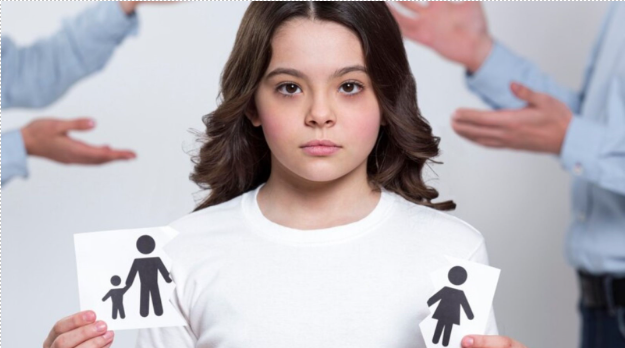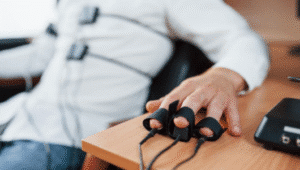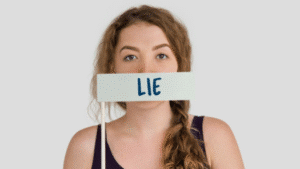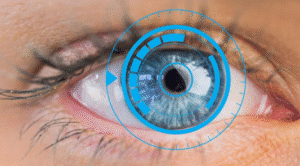According to a report published by the Human Rights Watch, at least one in three children in the United States (about 37.4% of the juvenile population) will be subject to a Child Protective Services (CPS) investigation by the age of eighteen years. These statistics underscore the rising incidences of child abuse and neglect among parents.
Recently, polygraph tests have become a critical tool in mediating child welfare disputes, bridging the gap between truth and allegations.
But to what extent can lie detector tests improve the outcome of child welfare cases?
Read below as we put that question into perspective.

What’s The Principle Behind Polygraph Tests?
Polygraphs were designed to detect deception by measuring changes in physiological responses regulated by the autonomic nervous system (ANS). Some of those responses include heart rate, breathing, and skin conductance.
When an examinee responds untruthfully to questions during a lie detector test, their response triggers dramatic elevations in the ANS-controlled functions and enables examiners to infer deception.
How Might Polygraphs Support Child Welfare Cases?
1. Corroborating Statements from Children and Parents
Child welfare cases are often shrouded in accusations and counteraccusations.
On the one hand, a child may report being deprived of their basic needs – food, clothing, shelter, and education. Yet, on the other hand, the accused parent may deny all neglect allegations leveled against them.
Where it’s a child’s word against their parents’, administering polygraph tests might be the only way to resolve the claims.
2. Investigating Abuse Symptoms
While emotional abuse symptoms aren’t always obvious, physical signs of neglect are almost instantly noticeable.
Where the signs are apparent, child welfare services may recommend polygraphing the parents.
Lie detector tests will reveal whether evidence of malnutrition, injuries, or lack of appropriate clothing is due to natural causes or wilful abandonment.
3. Validating Records
Documented records can be invaluable in determining the outcome of child welfare cases.
For instance, medical records can indicate a lack of proper healthcare, while academic records may show inconsistent school attendance, both tell-tale signs of negligence. There could also be people who observed the family and are willing to testify.
To validate the credibility of these pieces of evidence, various parties (parents, doctors, teachers, neighbors, etc.) may need to undergo lie detector tests.
4. Investigating the Home Environment
Impromptu home visits by child welfare services can uncover glaring evidence of child neglect, including unsanitary living conditions and hazardous home environments.
But when confronted with these findings, guilty parents will instantly deny any responsibility.
Scheduling a polygraph test can help to verify claims of neglect and secure justice for the affected children.

Are Polygraphs Legally Admissible?
Besides playing a critical role during child welfare cases, lie detector tests may be administered during divorce disputes involving child custody. Findings from these reports can help verify accusations of irresponsibility leveled against one or both spouses.
Ultimately, a family court judge will consider a child’s best interests when awarding custody rights.
To conduct a legally defensible polygraph exam, parties in child welfare disputes must consent to being polygraphed. All would-be examinees must also prepare adequately for the test, a robust process that involves undergoing preliminary interviews, during which they’re informed of the forthcoming evaluations and familiarized with the test subject.
Should Children Be Polygraphed?
The validity of polygraphing adolescents has been a subject of intense debate for years. It’s actually one of the core ethical issues surrounding the whole concept of lie detector tests.
According to opponents, juveniles have underdeveloped cognitive functions, which can impair their ability to respond truthfully to polygraph questions. That said, children aged at least twelve years and of normal maturity can be polygraphed if the tests are administered gently and non-accusatory.
It’s also best to obtain written consent from a child’s parents or legal guardians before polygraphing the child. If a child is averse to being polygraphed, an examiner may incentivize them with the promise of a reward. However, threats and other forms of negative inducement would subvert the process, rendering the results inaccurate and legally indefensible.

Under What Circumstances Might Children Be Polygraphed?
Besides validating neglect or abuse allegations, children may also be subjected to lie detector tests for the following reasons:
- Accused or suspected of theft
- Accused or suspected of (physical or sexual) assault
- Accused or suspected of academic misconduct
- Accused or suspected of drug use or possession of contraband
Are Polygraph Findings Used In Isolation?
Polygraph results should never be used as probative evidence during child welfare cases. Instead, the findings may only be relied upon to impeach or corroborate other evidence of neglect.
A judge will typically direct the plaintiffs to produce hard evidence, such as social worker reports, medical records, and witness testimonies. It’s only if the credibility of such evidence is challenged that polygraph tests may be recommended.

Upholding Juvenile Rights With Polygraph Tests
Lie detector tests can help resolve child welfare cases by validating abuse and neglect allegations. Findings from polygraph exams may also be used during divorce proceedings to establish grounds for awarding child custody.
However, certain ethical standards must be upheld while administering child abuse polygraph evaluations.
Besides using the test results strictly to validate other pieces of evidence rather than as probative proof of negligence, minors should be exempt from undergoing lie detector tests unless by express direction of a competent judge.






